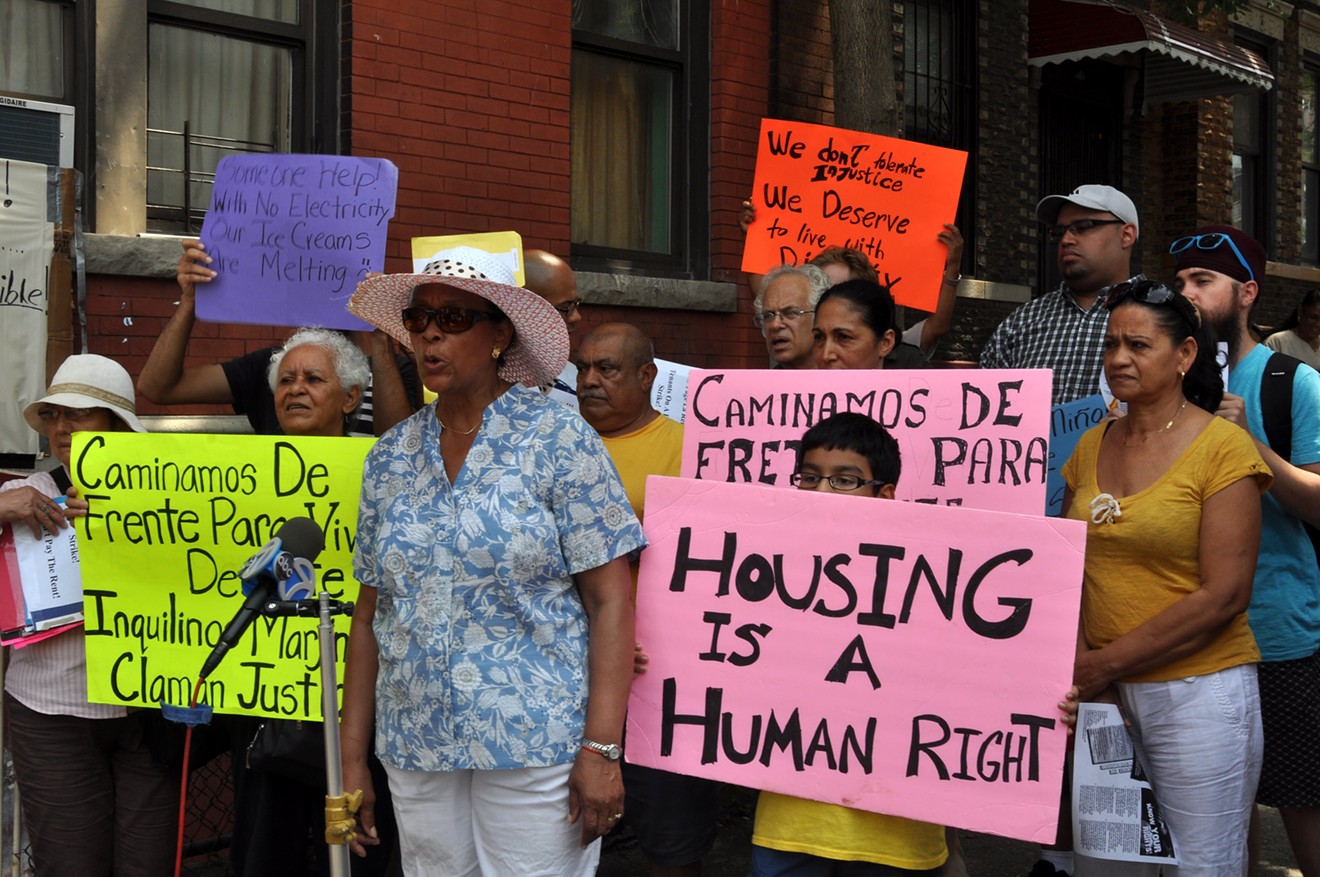Last month, a woman who lives in the Broward city of West Park emailed state Rep. Shevrin Jones with an urgent problem.
Unable to pay her rent, she said her landlord had shut off the electricity to the home she shares with her husband and three children. Jones promised to help and contacted the landlord to let him know that what he was doing was illegal.
"When I got to that point, he hung up on me," Jones tells New Times. "He went over to their house again to threaten to throw them out."
Under Florida law, landlords can't shut off a home's power or water in an attempt to force out a renter. But now that many tenants are struggling to pay rent because of a coronavirus-related job loss, some advocates worry that cash-strapped families could face retaliation in the form of a utility shutoff.
"We have not seen a huge deluge of it yet, but we anticipate that might be coming, because landlords might resort to this," says Sean Rowley, advocacy director of the tenants' rights unit for Legal Services of Greater Miami.
Florida Statute 83.67 says a landlord cannot directly or indirectly cut off any utility service, including water, heat, light, electricity, gas, elevator operations, garbage collection, or refrigeration — not even if the landlord is paying for the service. The law is meant to prevent landlords from subverting the formal eviction process simply by making a property uninhabitable. As of now, a statewide moratorium on evictions is in place until mid-May.
If your landlord does shut off your utilities, Rowley recommends calling the police, if you're comfortable doing so. Tenants should also contact their landlord in writing to document the issue.
"Any written documentation explaining, 'I'm demanding water or electric be restored,' will do," Rowley says.
Renters in Miami-Dade can call Legal Services for assistance, and those north of the county line can contact Broward Legal Aid.
Jones says he and West Park Vice Mayor Brian Johnson and Commissioner Felicia Brunson were able to get the power back on at his constituent's house. They've helped provide the family with food and other resources to get back on their feet. But Jones says the landlord still wants the family out and has been showing the home to potential buyers.
Rowley says tenants in that position do have legal recourse. According to the law, landlords can be sued for up to three times the cost of monthly rent for each violation of the utilities statute — and ignorance of the law is not a defense.
"A lot of tenants don't know that's the law," Rowley says, "but a lot of landlords don't know that's the law, either."
[
{
"name": "Air - MediumRectangle - Inline Content - Mobile Display Size",
"component": "19274298",
"insertPoint": "2",
"requiredCountToDisplay": "2"
},{
"name": "Editor Picks",
"component": "17482312",
"insertPoint": "4",
"requiredCountToDisplay": "1"
},{
"name": "Inline Links",
"component": "18711090",
"insertPoint": "8th",
"startingPoint": 8,
"requiredCountToDisplay": "7",
"maxInsertions": 25
},{
"name": "Air - MediumRectangle - Combo - Inline Content",
"component": "17482310",
"insertPoint": "8th",
"startingPoint": 8,
"requiredCountToDisplay": "7",
"maxInsertions": 25
},{
"name": "Inline Links",
"component": "18711090",
"insertPoint": "8th",
"startingPoint": 12,
"requiredCountToDisplay": "11",
"maxInsertions": 25
},{
"name": "Air - Leaderboard Tower - Combo - Inline Content",
"component": "17482313",
"insertPoint": "8th",
"startingPoint": 12,
"requiredCountToDisplay": "11",
"maxInsertions": 25
}
]












